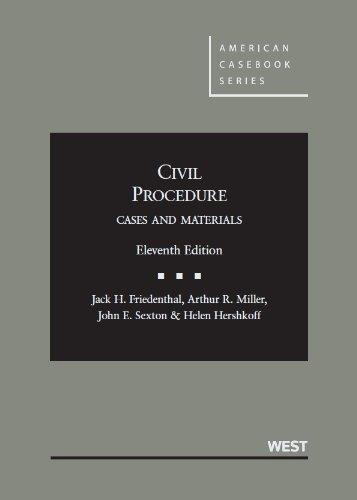2. What is the constitutional basis for the statement in Erie that Congress has no power to...
Question:
2. What is the constitutional basis for the statement in Erie that “Congress has no power to declare substantive rules of common law applicable in a State” and that “no clause in the Constitution purports to confer such a power upon the federal courts”? Consider, first, Article I of the Constitution. Does Congress have power under that provision to regulate commercial activities that affect interstate commerce? Is it significant that by time Erie was decided, Congress already had enacted legislation regulating railroads with408respect to employment and tort liability, e.g., Federal Employers Liability Act of 1908, 45 U.S.C. § 51? If Congress had power to legislate in this area, why couldn’t the courts act, as well? See Clark, State Law in the Federal Courts: The Brooding Omnipresence of Erie v. Tompkins, 55 Yale L.J. 267, 278 (1946).
Step by Step Answer:

Civil Procedure Cases And Materials
ISBN: 9780314280169
11th Edition
Authors: Jack Friedenthal, Arthur Miller, John Sexton, Helen Hershkoff






